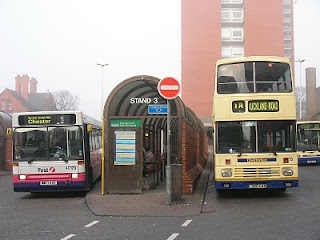Trade magazine New Transit did ring me for a quote but you'll have to wait until it is published!
I remember saying "weight reduction" without realising quite how important weight saving would be many years later when the real price of fuel started to hurt.
Somehow you are often led by what you were used to. At EnsignBus we had been highly satisfied with our Gardner 6LXB DMSs so it was only a short step for us to buy brand new Metrobus II Gardner/Voith vehicles as well. When MCW ran into difficulties, it was a short hop across to the Gardner/Voith Dennis Dominator - in many ways what the Fleetline might have become.
Over 1000 Dominators were made before it gave way to the Arrow - again a lighter weight and simple machine which filled the gap really well before the first generation of low floor double-deckers. Some are still giving good service.
Along the way a few ideas fell by the wayside - perhaps the most disappointing was the Gardner LG1200 engine which we really hoped would follow the 6LXB. How surprising that after many years of being the mainstay of British bus and truck engine manufacturing industry (even London Transport was persuaded in the 1970s), changes in commercial and marine requirements in the 1990s would mean the cost of development would overwhelm the major UK engine manufacturer.
I, too, had been brought up with the notion that engines had to be big and slow, hugely fuel-efficient and lasting a lifetime. Now, of course science has brought us smaller engines, running at faster speeds, but with fuel delivery, oil technology, and computers giving us the economy and early warning of impending failure.
Ah well - clearly shows the need to keep up to date. Now where's my iPad?
Two shots I am sure you haven't got! Our first Metrobuses were from South Yorkshire and here is 298 on the Aldenham tilt test mchine, newly operational at Ensign's Purfleet premises. And 181, the LG1200 Dominator which we had set such hopes by, at the annual Bus and Coach Show at NEC in 1991.
....









